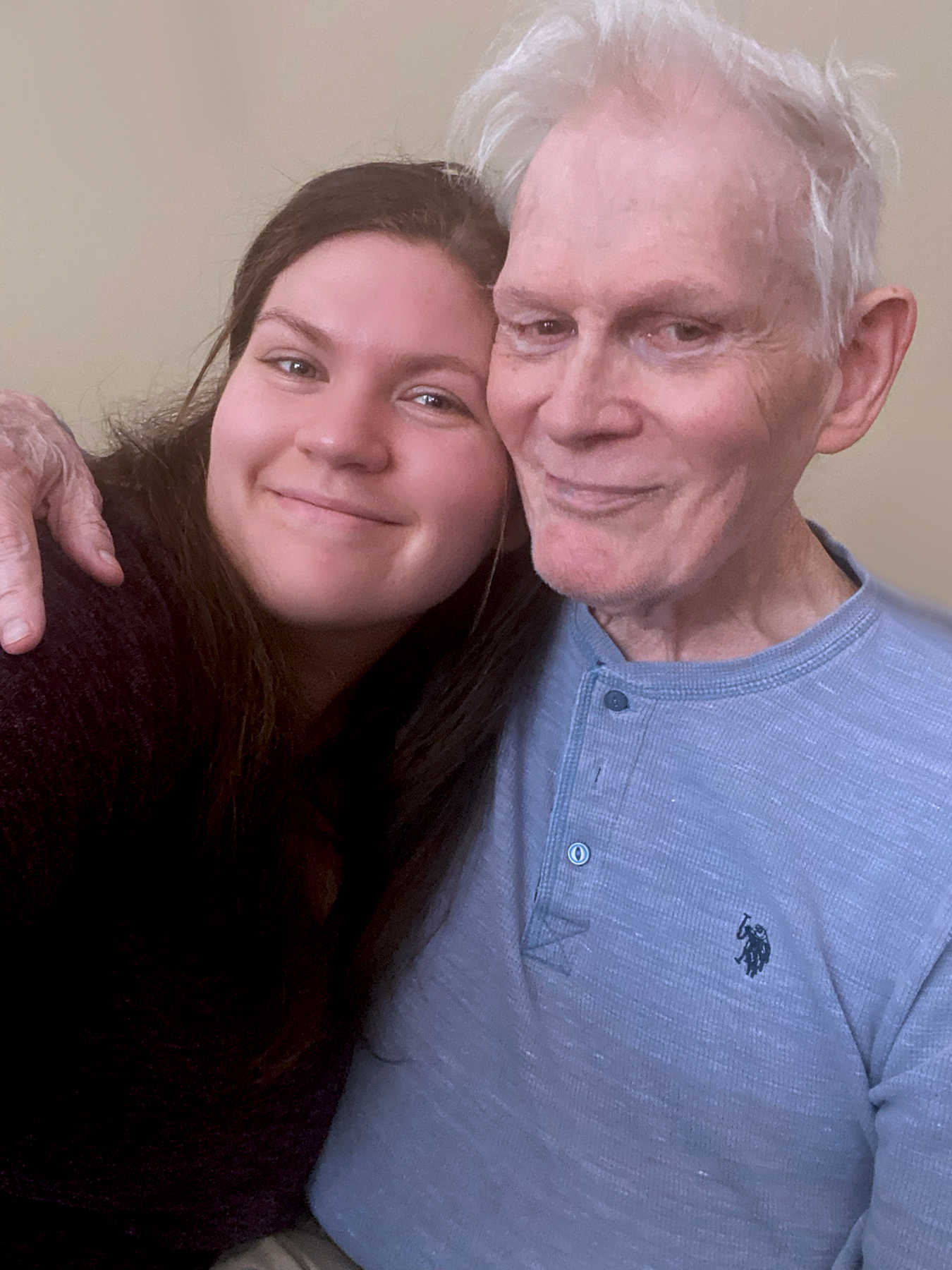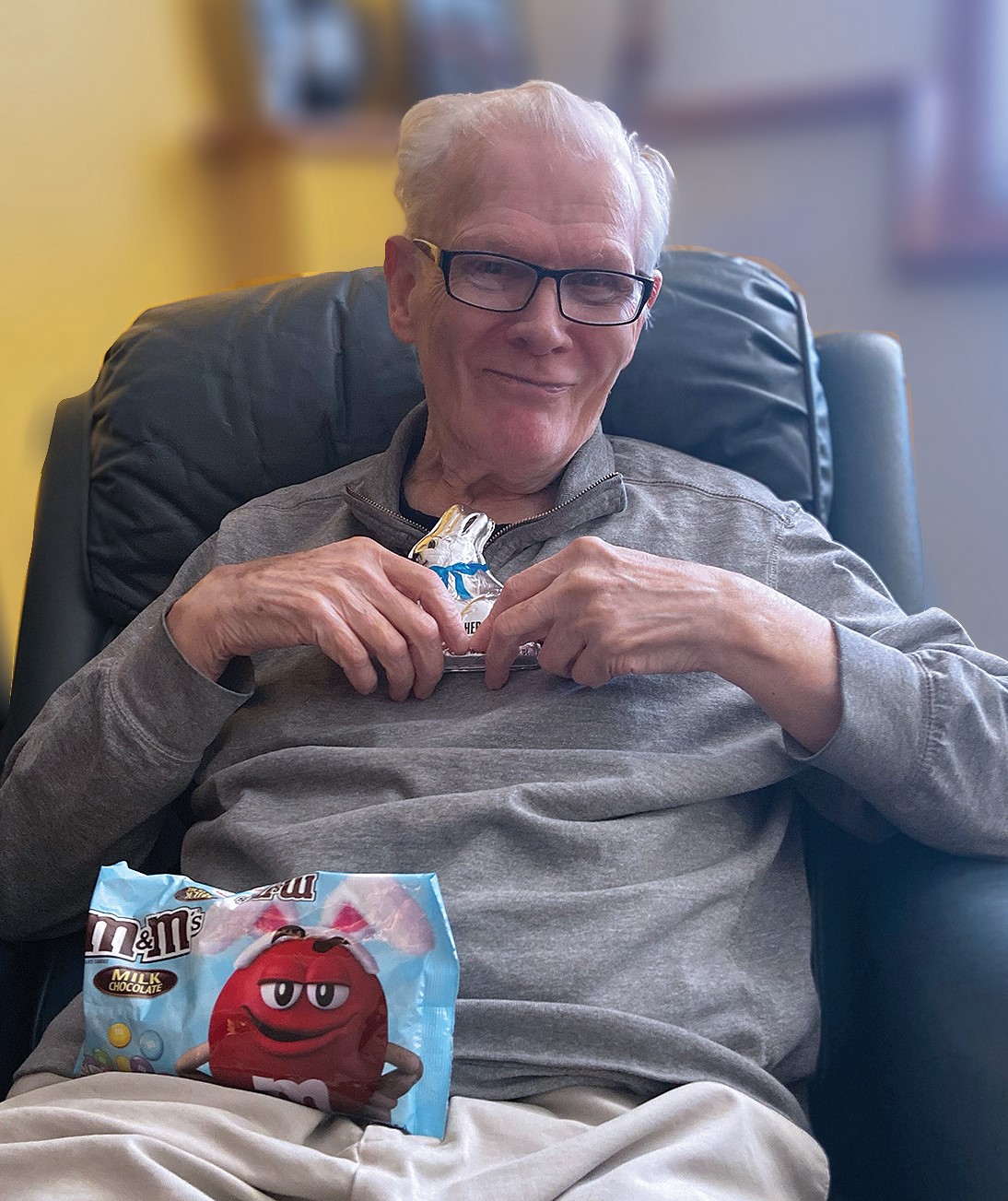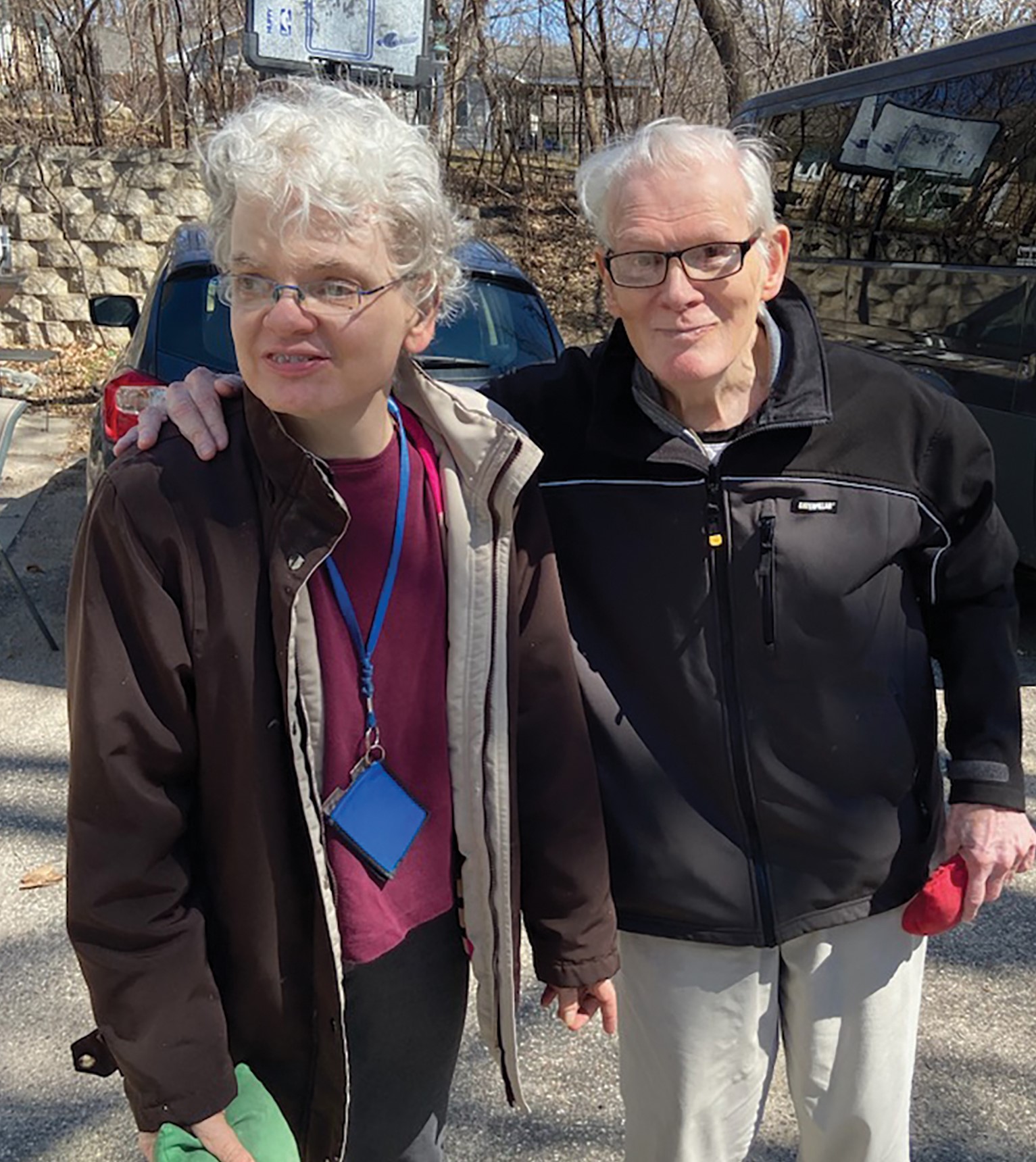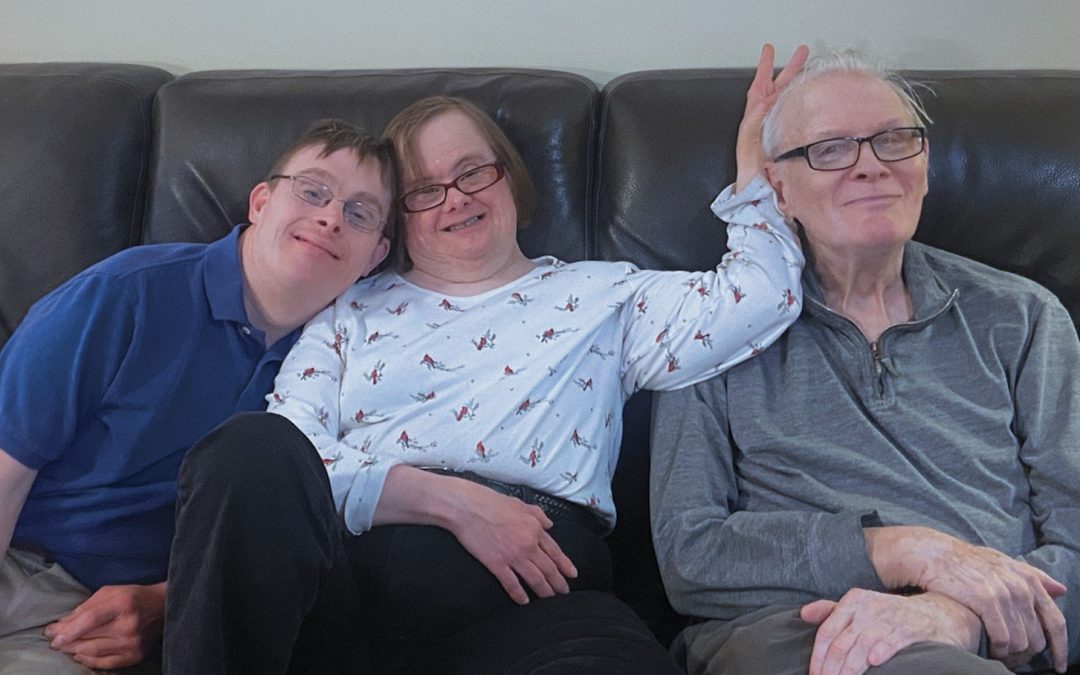Every person on earth deserves to have their basic needs met which include being loved, comforted, and having a sense of belonging. We all need emotional warmth and a sense of belonging; this includes individuals who are experiencing cognitive decline.

Anna with James
James and I have known each other for the last seven years. It’s safe to say that I have aged with James just as much as he’s aged with me. We both have had to adjust in ways that we could never have imagined.
Let’s start from my beginning. When I met James, I was shocked to find out he was 80. He was filled with energy and had a vibrant presence that was hard to ignore. James and I would often spend afternoons together where we would have “coffee or pop talks” to make sure he was in a good spot. It was his time to shine, joke around, talk or not talk and ask any questions he wanted. At that time, the conversation was mainly filled with how he was going to fill his evenings or when the next outing was going to be or where they were going to go to dinner.
James always kept to a routine. Every morning like clockwork he would get up, take a shower, change, eat breakfast, and do his biking and PT exercises and then he went on with the rest of his day, with minor staff prompting. As he’s gotten older, we have had to change our support from verbal prompts to fully adjusting to meet where James is for the day, which typically has James participating with minor steps like pressing the start button on the washer and dryer. When he doesn’t sleep well at night, on the next day, we just follow James’ pace and adjust our day around him.

James recently celebrated his 87th birthday!
For James to be successful, staff now need to greet him with a smile and a lighthearted conversation. James may not remember who the staff are but if he feels that warmth from the staff, that helps his day go smoothly. Staff really must pay attention and focus on the conversation with James. We need to adjust our communication style to fit his. We need to speak slower, pause between sentences, and speak simply but still in our normal tone. We sometimes need to use visual cues and repeat the information in order for him to comprehend.

James and his friend, Michelle
At the Carlson home, we had to change the physical environment to better suit all the individuals there along with James. We installed more lights in the house to prevent shadowing that might cause discomfort to some going through the aging process. We also installed a chair lift so that everyone can have access to each other (James lives on the lower level). James still has a lot of physical abilities, but on the rougher days he has a hard time moving around and needs to have a lift for him to gain access to the upstairs and to be with his other friends who live in the home.
Reflecting on how James has impacted me, he has taught me so much about living life; that even in the darkest times there is always a reason to smile. James has also shown me how to just “be still” and enjoy the moment. When talking to others about how James has impacted their lives, Lois Jackson, Program Manager at the Carlson home, says, “James has shown that even without his biological family being involved in his life he has still found happiness every day. This showed me that you can find family and love from people beyond blood relations.”
Throughout the years, my conversations with James have changed from making a plan, to answering more repetitive questions such as when I will be back or just being content with sitting beside one another. At our last coffee talk James asked, “Can you be my best friend?” I said, “Better yet you can be my person.” With a smile and a big hug James said, “Good.”
Anna is the Program Director of the Carlson home where James resides. He is pictured above with his housemates, Alex and Gretchen.


Recent Comments